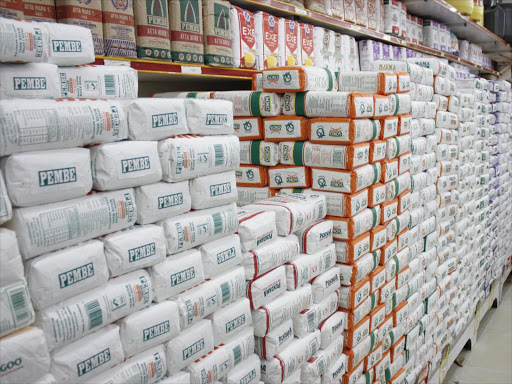Life in Kenya is slowly becoming “1000 ways to die” due to the sky-rocketing prices of basic commodities.
For the first time in history since this country gained its independence, the cost of a 2kg packet of maize floor has reached Ksh 200.
Two weeks ago the government announced a subsidy that would lower the price to Ksh 100.
The relief, which Kenyans have been enjoying for these few days, has sadly been short-lived.

The Ksh 100 unga has run out of stock, forcing Kenyans to still buy the Ksh 200 unga, despite the government insisting the precious commodity is in plenty.
Over the Weekend, Kenyans took to their social media accounts to complain that the government was deceiving them.
Some media stations decided to check out if the subsidized commodity was truly unavailable and they found that most supermarkets did not have the Ksh 100. The few that had the stocks saw customers scrambling for the commodity.
Some supermarkets had to enforce a policy of “one packet per customer” to enable all their customers to access the highly demanded Unga.
In most cases, customers were seen waiting, hoping that the supermarkets would restock.
One Martin, a customer at Naivas Mt.View Shopping Mall, complained,
“We have been here since 11 am but have seen no signs of restocking the shelves. We are asking, where is the KSh 100 unga that the government directed?”
Some customers have been forced to use trickery to buy more than one packet in places where the subsidized maize floor was available.
A bodaboda rider, also a customer at Naivas, recounted how he had his give colleagues money to buy him the Unga after he was denied to pay for three packets.
“I wanted three packets of unga but the cashier did not allow. So what I did, I went out, gave two of my colleagues Ksh 100 each, and that is how I secured my three packets.”
In response to the ongoing shortage, the government has blamed rogue maize millers for “hiding” the subsidized unga to make profits for the Ksh 200 unga.
In a rally on Saturday, the Cabinet Secretary of the Ministry of Agriculture announced that the law would be applied to those responsible for the floor shortage.
Until then, Kenyans will have to bear with the unsubsidized floor, hoping that tomorrow will be a better day.









































